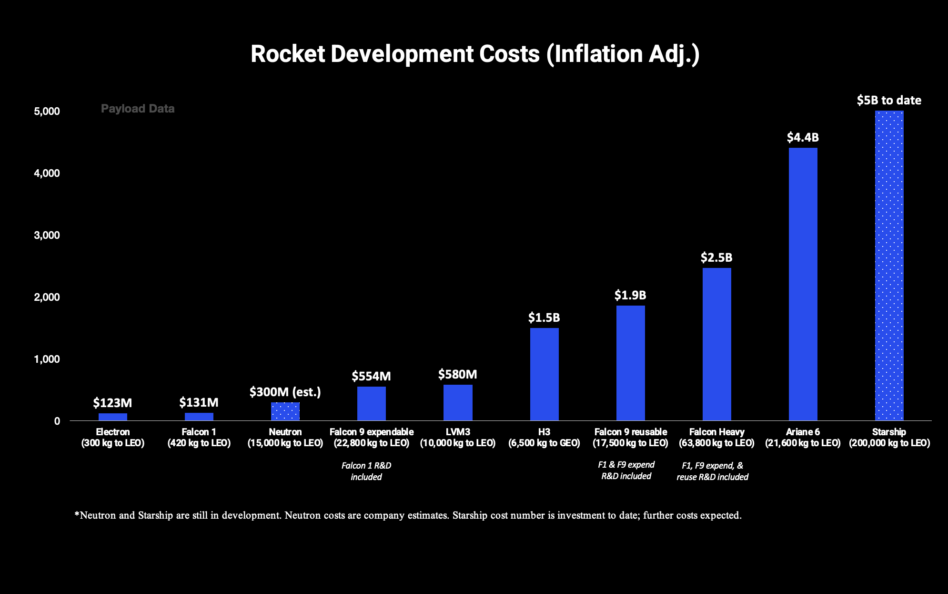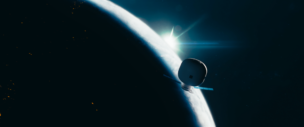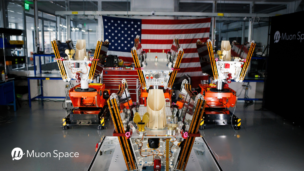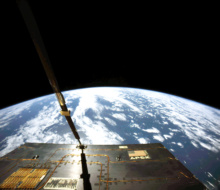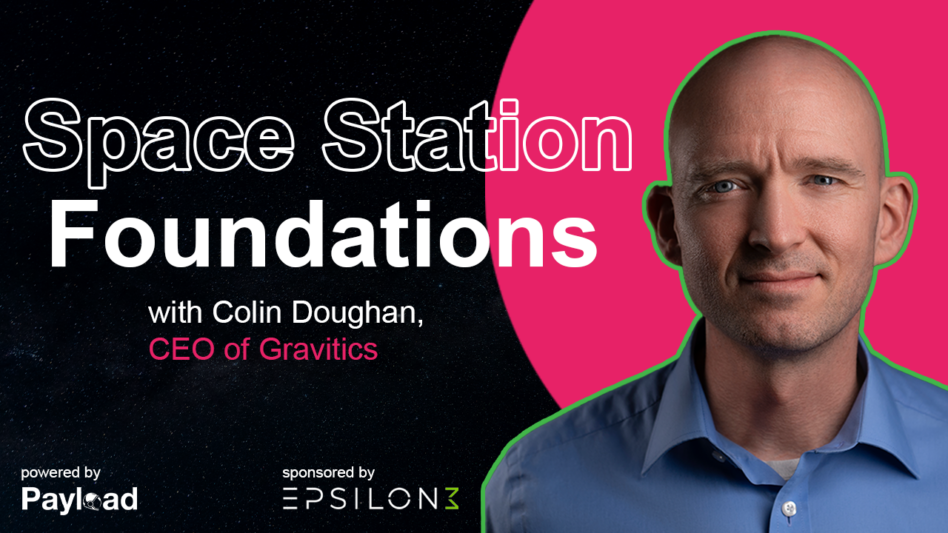In 2008, Falcon 1 became the first privately funded, fully liquid-fueled launch vehicle to reach orbit. Its development cost? Just $90M ($131M inflation adj.).
Two years and $300M ($423M inflation adj.) later, Falcon 9 arrived on the scene.
The final cost to build Falcon 9 was just $390M ($554M inflation adj).
In a now iconic 2011 NASA report (Wayback Machine FTW), the space agency admitted that if they had attempted to develop the Falcon 9 rocket themselves, it would have cost them up to $4B.
Falcon 9’s development costs were multiple orders of magnitude less expensive than any rocket NASA had ever built. Apollo launch vehicles cost around $100B to develop, the Space Shuttle was in the $50B range, and SLS was $24B, all inflation-adjusted.
Government-supported rocket programs have historically experienced significant cost inflation and overruns.
Commercial rocket development, fueled by billions in venture capital and rapid innovation, is proving to be much more cost-efficient. And it’s not just SpaceX; dozens of other launch startups like Rocket Lab, Firefly, Relativity, Stoke, and ABL are also attempting to prove out low-cost-to-develop rocket builds.
Small and Medium Rocket Development
Electron and Neutron: Rocket Lab spent $100M ($123M inflation adj.) to get Electron to orbit, putting the development costs on par with Falcon 1’s $90M ($131M inflation adj.).
In addition to cost, Electron shares another similarity with Falcon 1: both are small rockets. A tidbit I always found interesting is that if you combine all the mass that Rocket Lab has ever lifted to orbit over 50+ Electron launches, it is less than the capacity of just one Falcon 9 launch.
So Rocket Lab has turned its attention to its next, much larger vehicle: Neutron.
Neutron is slated to launch next year. On February’s Rocket Lab earnings call, CFO Adam Spice said development costs are “going to be remarkably close to $300M.” While costs could end up higher —c’est la vie in space—spending just $300M to develop a 15,000 kg to LEO vehicle would be an impressive feat.
Government-backed LVM3 and H3:
- LVM3: The Indian state-owned launch vehicle LVM3 cost $437M ($580M inflation adj.) to develop, which is twice the expected development cost for Neutron.
- The price tag represented a sizable investment for the country, considering ISRO’s current budget is $1.6B and general cost differences in India.
- H3: JAXA and its partners spent $1.5B developing H3, which is five times the expected development cost for Neutron.
Heavy-Lift Rocket Development
Government-backed Ariane 6 and SLS rockets:
- Ariane 6: ESA and its member states forked over $4.4B to develop Ariane 6.
- Customer launches are unlikely to pay back development costs any time soon. In addition to high launch costs, member states are planning annual subsidies of €340M ($369.7M) to stay competitive.
- SLS: NASA spent a dizzying $24B developing SLS.
- NASA owns the rocket but contracts out work to Boeing, Aerojet Rocketdyne, and Northrop Grumman. The cost-plus partnerships have led to well-documented cost overruns.
Starship: SpaceX has invested over $5B in Starship R&D to date. Starship has proven its expendable capability, and the company is focusing on achieving full reusability, an endeavor that could require SpaceX to spend billions more in development dollars. Musk has previously said SpaceX could spend up to $10B on the program.
And then there is the Falcon rocket family.
SpaceX Falcon Development
Falcon 9 and Falcon Heavy: After successfully launching Falcon 1, SpaceX invested in an expendable Falcon 9, then a reusable Falcon 9, and finally Falcon Heavy. Each new rocket variant built on top of its predecessor’s R&D, as follows:
- Falcon 1:
- Total development costs: $90M ($131M inflation adj.).
- Falcon 1 —> Falcon 9 expendable:
- Incremental costs: $300M ($423M inflation adj.)
- Total Falcon development costs: $390M ($554M inflation adj.)
- Falcon 9 expendable —> Falcon 9 reusable:
- Incremental costs: $1B ($1.3B inflation adj.)
- Total Falcon development costs: $1.4B ($1.9B inflation adj.)
- Falcon 9 reusable —> Falcon Heavy:
- Incremental costs: $500M ($614M inflation adj.)
- Total Falcon development costs: $1.9B ($2.5B inflation adj.)
Other Rockets
- Firefly: Firefly has raised $483M to date. The company has launched its Alpha rocket (1,030 kg payload to LEO) five times, with its first complete success coming on its third flight last year. We can presume Alpha’s development costs were just a few hundred million dollars.
- ABL Space Systems: ABL has raised $461M thus far but has yet to reach orbit with its 1,350 kg to LEO RS1 rocket.
- Relativity: Relativity founder Tim Ellis told Payload that he believes the company can build the partially reusable Terran R for less than SpaceX spent to get to a reusable Falcon 9. The company has raised $1.3B but has yet to reach orbit.
- Stoke: Stoke has raised a total of $175M to build Nova, its fully reusable rocket. The company plans to launch Nova in 2025. Whether the company will need to raise additional bucks to reach an orbital-proof point is yet to be seen.
